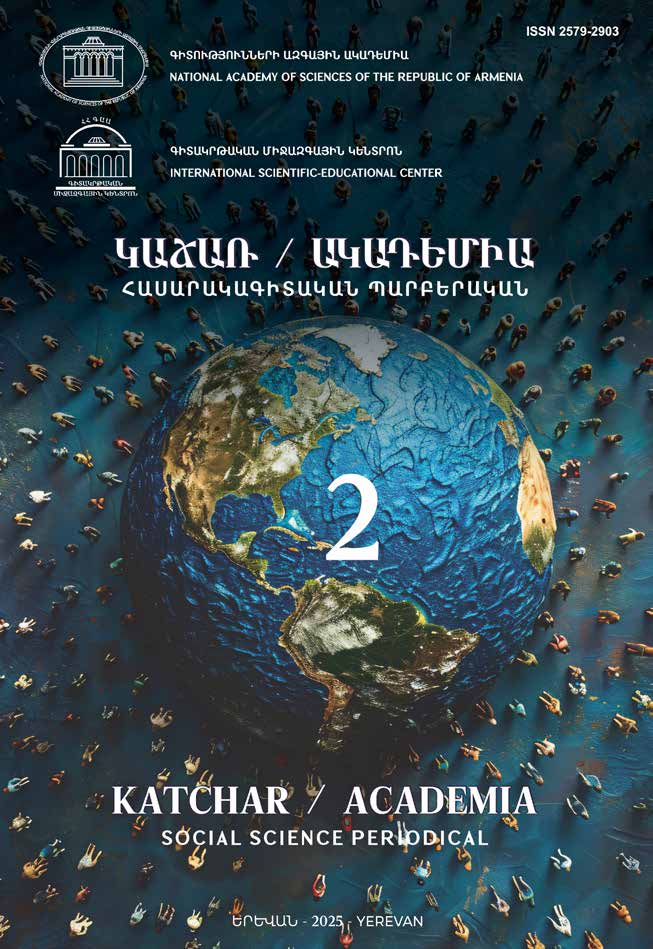COMPARATIVE ANALYSIS OF THE SOCIO-PSYCHOLOGICAL FEATURES OF COPING STRATEGIES AMONG WAR PARTICIPANTS
DOI:
https://doi.org/10.54503/2579-2903-2025.2-20Keywords:
Coping strategies, war, value orientations, stress resilience, PTSD, PTGAbstract
This article analyzes the coping strategies of 200 combatants who participated in military operations in Armenia and Artsakh during different periods (1990s, 2016, 2020, 2021–2023). Using multivariate statistical analysis (MANCOVA) and validated psychometric tools, the study reveals significant differences in adaptive mechanisms depending on the nature of the war and the socio-political context.
One of the key findings is that veterans of the First Artsakh War and the short-term April War exhibit high stress resilience, predominantly employing active strategies such as self-regulation and planning. In contrast, individuals subjected to repeated trauma demonstrate reduced adaptability. Participants in more recent conflicts are inclined toward positive reappraisal, determined by social cohesion and post-traumatic growth.
At the value level, there is a prominent demand for universalism and security among groups that participated in recent military operations, reflecting a re-evaluation of uncertainty and losses. The escape-avoidance strategy significantly reduces stress resilience, particularly in cases of multiple traumas.
The study highlights the cumulative negative impact of repeated trauma and the necessity of developing differentiated rehabilitation programs that consider the time period of the war, individual resources, and the role of social support within the cultural context.

Downloads
Published
How to Cite
Issue
Section
License
Copyright (c) 2025 KATCHAR / ACADEMIA. SOCIAL SCIENCE PERIODICAL

This work is licensed under a Creative Commons Attribution-NonCommercial-NoDerivatives 4.0 International License.



